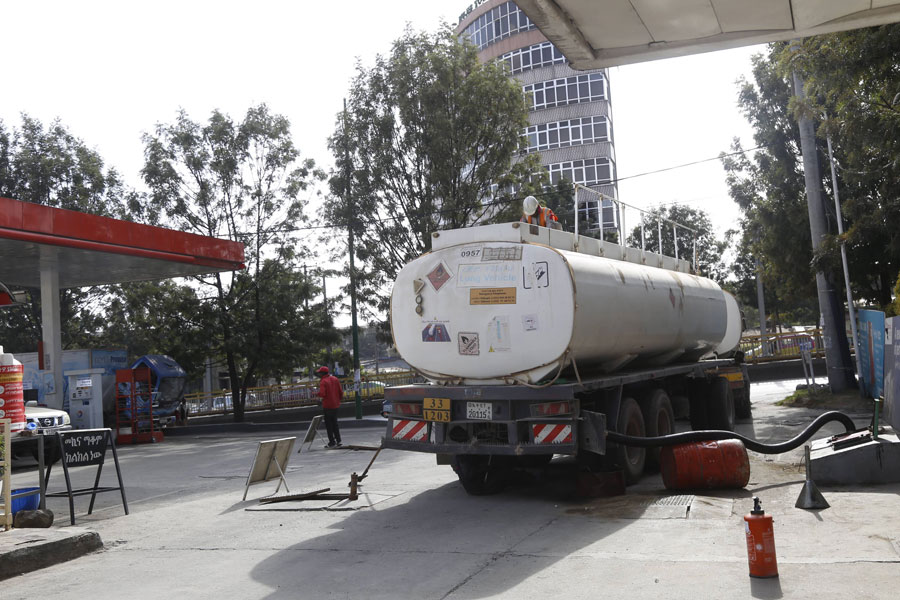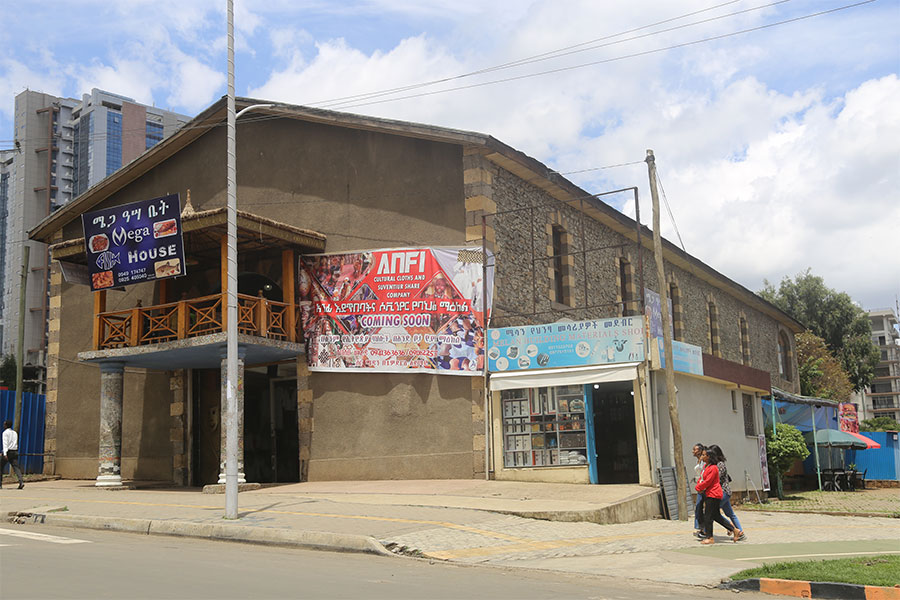
Jul 10 , 2020.
"When the situation was manageable, it was neglected, and now that it is thoroughly out of hand, we apply too late the remedies which then might have effected the cure. There is nothing new in the story . . . Want of foresight, unwillingness to act when action would be simple and effective, lack of clear thinking, confusion of counsel until emergency comes, until self-preservation strikes its jarring gong - these are the features which constitute the endless repetition of history."
Winston Churchill
There have been few times in the past two years when it felt like the tensions that have been building up and simmering within the Ethiopian state as the various groups competed for power would finally come to a boiling point. One of those days, and perhaps the most consequential, was Monday late at night last week. On June 29, 2020, reports of the death of a popular singer shocked the country. It was tragic and regrettable.
The following day, youth poured into Addis Abeba to express their anger and frustration at the loss of Hachalu Hundesa, a man they considered to be a voice of their cause. His death sparked protests in Addis Abeba and the Oromia Regional State. It was understandable.
But the problem soon degenerated into violence, and before the day was over, there was destruction of properties and loss of lives. This inevitably met with counter-demonstrations and forceful resistance in the following days.
The government, slow to take charge of the narrative throughout the night on Monday, responded on Tuesday with an internet blackout imposed across the country. Federal police forces flooded the city, whom, to their credit, have exercised restraint in their attempt to control the mob - of both kinds. In the subsequent days, prominent political figures were arrested, including unidentified individuals as suspects for the murder of Hachalu.
Shimelis Abdissa, president of the Oromia Regional State; Takele Uma, deputy mayor of Addis Abeba; and Prime Minister Abiy Ahmed (PhD) addressed the public one after the other through the state media with stern warnings to those they considered were responsible for the breakdown of law and order and were accused of fanning the flames of violence.
At this point, the honeymoon was not just over. It seemed to have gone to never return.
Notable as the unrest across the country unfolded was the force with which the administration decided to respond. It was clear that forces with whom the administration was on a trajectory of collision would finally no longer be tolerated by the state. Evidence of this was the unequivocally worded warning from the authorities that dissent weaponised for the purposes of violence would be responded to in kind.
Taken on its own, part of what had occurred since Tuesday was the use of force for securing political advantages. The administration’s use of instruments of violence, through the deployment of police and the army, was justified in as far as it was proportionally utilised.
The state’s most important duty and its primary purpose is the safeguarding of citizens from physical harm and the protection of their property. This is why, as it is now, the administration of Prime Minister Abiy is empowered to invoke extraordinary powers of the state of emergency when there is a breakdown of law and order. The physical safety of citizens is such an important task of the state that almost all political and democratic rights are allowed to be curtailed as its justification.
It was, in fact, due to this failure of the government’s duty that the unrest last week spawned further demonstrations. Reeling from the threat, as well as instances of violence, neighbourhood vigilante groups popped up in various parts of Addis Abeba. This was people taking matters into their own hands and mobilising to exercise force in self-defense.
The neighbourhood vigilante groups were clear signals of the privatisation of violence, and it portends a worrying development. If there is one thing every political ideology overlaps on, from libertarianism to communism, it is that the monopoly on the use of legitimate force belongs to the state. It is a Weberian construct. Privatised, or outsourced, it completely incapacitates political competition and leads to anarchy.
It is in the state’s exercise of power - as it attempts to ensure the monopoly of force - that history may repeat itself. Here, the wise words of Churchill come to mind.
The promise and aspiration for change followed with violence parallels the mid-1970s political developments. It was similarly a time that was pregnant with change but later blighted by conflicts. The various opposition groups that were contending for political power were not free of blame, especially in their resort to violence to realise political goals. But it was the exercise of power - or its abuse and misuse - by the state that had sealed the nail in the coffin.
The military officers grouped as the Dergue (Committee) were custodians of state power that was to be used to protect citizens from harm and administer justice. They instead went down to the level of the contending parties and exercised violence without due process and no sense of constraint. They injected themselves as a party with a political stake in the game and brought to bear the full force of the state on those they labeled as "enemies of the country." These were “reactionaries”, “anarchists”, “petit bourgeois” and “imperialists.”
Their use of disproportional force and the clear preference the Dergue had shown to some groups made it an untrustworthy administrator of justice. It left the opposition without any device to contend for power except to resort to political violence, thereby setting up its own use of violence as an extension of the duty to protect and serve. It was fait accompli.
It is on the edge of a similar precipice that Prime Minister Abiy and his administration stand today. Whatever the behaviour of those on the ground may be, the administration's conduct is weighed on a different scale. It is the custodian of state power. Hence, responsibility, accountability and restraint are expected from its corner more than from anywhere else.
The administration is expected to conduct itself with patience, courage and determination. As it has always been, it is what those in the helm of state power do or do not do that matters most. By way of the resources the state collects, the instruments of violence at its disposal and a social contract that legitimises its monopoly of physical force, it can affect the lives of people more than any of the contending parties on the ground could.
The most important task it can have now is to act as a responsible body whose objective is to rein back its loss of monopoly of force and uphold law and order. Its primary duty is safeguarding of the safety of citizens. Failure at this task will inevitably lead to a spiral of violence as contending parties take matters into their own hands.
It is here where things went all wrong from the start. The state abrogated its duty to citizens in protecting their lives and property in favour of political expediency. It deferred its role of acting like any responsible and legitimate state would have done.
However, the exercise of force with the same abandon of responsibility does not make it anymore acceptable when it is the state that is doing it. Just as necessary would be establishing accountability and administering justice through the due process of law. This requires the courage to rise above politics and the fair treatment of those charged with perpetuating the violence that followed.
It would otherwise be hard to legitimise the use of force, for the custodians of state power have a higher responsibility to exercise fairness and restraint.
PUBLISHED ON
Jul 10,2020 [ VOL
21 , NO
1054]

Fortune News | Jan 22,2022

Commentaries | May 13,2023

Commentaries | Sep 10,2023

Commentaries | Apr 10,2023

My Opinion | Jan 23,2021

Radar | Apr 03,2023

Commentaries | Jan 31,2021

Viewpoints | Jan 27,2024

Commentaries | Apr 11,2020

My Opinion | Mar 12,2022

Photo Gallery | 174568 Views | May 06,2019

Photo Gallery | 164797 Views | Apr 26,2019

Photo Gallery | 154987 Views | Oct 06,2021

My Opinion | 136693 Views | Aug 14,2021

Dec 22 , 2024 . By TIZITA SHEWAFERAW
Charged with transforming colossal state-owned enterprises into modern and competitiv...

Aug 18 , 2024 . By AKSAH ITALO
Although predictable Yonas Zerihun's job in the ride-hailing service is not immune to...

Jul 28 , 2024 . By TIZITA SHEWAFERAW
Unhabitual, perhaps too many, Samuel Gebreyohannes, 38, used to occasionally enjoy a couple of beers at breakfast. However, he recently swit...

Jul 13 , 2024 . By AKSAH ITALO
Investors who rely on tractors, trucks, and field vehicles for commuting, transporting commodities, and f...

Oct 12 , 2025
Tomato prices in Addis Abeba have surged to unprecedented levels, with retail stands charging between 85 Br and 140 Br a kilo, nearly triple...

Oct 12 , 2025 . By BEZAWIT HULUAGER
A sweeping change in the vehicle licensing system has tilted the scales in favour of electric vehicle (EV...

A simmering dispute between the legal profession and the federal government is nearing a breaking point,...

Oct 12 , 2025 . By NAHOM AYELE
A violent storm that ripped through the flower belt of Bishoftu (Debreziet), 45Km east of the capital, in...